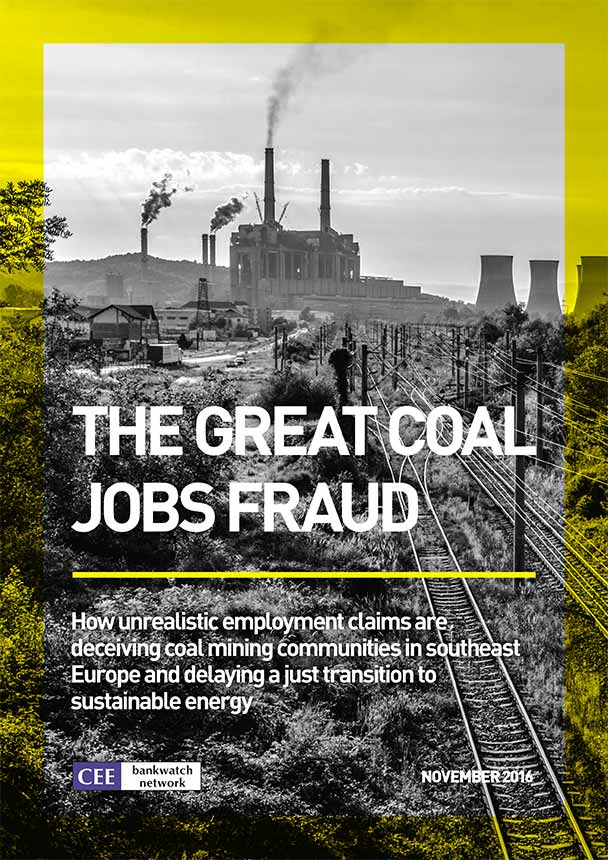The Western Balkans is becoming a region of contrasts. While North Macedonia has pledged to phase out coal by 2027, Serbia and Bosnia and Herzegovina still plan new lignite power plants, despite pledging to phase out fossil fuels by 2050 as part of the EU’s Green Agenda. Several plants have been cancelled but the region’s development of sustainable renewables is lagging, making the region vulnerable during the ongoing energy crisis.
Never miss an update
A few years ago all the countries of the Western Balkans, except Albania, were planning to build at least one new lignite unit. But now Montenegro, North Macedonia and Kosovo have dropped those plans and Bosnia and Herzegovina and Serbia have scaled down their ambitions.
Bankwatch has been working with local groups to prevent the construction of new coal plants and ensure that existing plants close as soon as possible.
Stanari in Bosnia and Herzegovina, which started operations in 2016, is the only new coal plant built in the region in the last thirty years, and Kostolac B3 is under construction in Serbia as of early 2023. But the future of other planned plants such as Tuzla 7, Banovići, Ugljevik III, Gacko II and Kakanj 8 hangs in the balance.
Where existing plants need to operate for several more years, we work to ensure that they comply with pollution control legislation as an interim measure while southeast Europe finally speeds up the path to an efficient energy system, based on sustainable forms of renewable energy. We are also working to ensure that the need for district heating does not slow down the coal phase-out and that coal-dependent regions can undergo a participatory, bottom-up just transition.
Ensuring the implementation of selected parts of the Energy Community Treaty, as well as trying to strengthen the Treaty, is a key part of our work. We are also following the EU’s Green Agenda for the Western Balkans and Economic and Investment Plan to try to make sure they have a positive impact.
For more on the current state of play in the Western Balkans power sector, see our December 2022 report here.
Bulgaria
Country profile
Croatia
Country profile
Plomin C coal power plant CANCELLED
Kosovo
Country profile
Kosova e Re lignite power plant CANCELLED
Montenegro
Country profile
Pljevlja I power plant
Pljevlja II lignite power plant CANCELLED
North Macedonia
Country profile
Romania
Country profile
Rovinari unit 7 CANCELLED
Details
Economic risks
Coal is not cheap – it only appears so when it does not pay its environmental and social costs, and when it is heavily subsidised.
For this reason, most financiers now see coal as a liability and refuse to finance new coal plants. In 2013 the European Investment Bank, the European Bank for Reconstruction and Development and the World Bank virtually halted lending for new coal power plants.
China has been willing to finance several coal plants in the Western Balkans such as Kostolac B3 and Tuzla 7, but in October 2021, China’s president also announced, at the annual UN summit, that China will not build new coal-fired power projects abroad. However, no clear timeline has since been put forward, nor is it clear if this refers to projects that already have some sort of bilateral agreements with host countries. Still, in early 2022 it was confirmed that no Chinese financing would be available for the planned Ugljevik III coal plant in Bosnia and Herzegovina.
It is therefore unclear who would still be willing to finance coal projects that are still planned such as Gacko II or Ugljevik III.
Subsidies for coal
In 2020, the Energy Community Secretariat found that subsidies for the coal sector in the Western Balkans and Ukraine amounted to EUR 2 billion between 2015 and 2019 – a considerable amount for countries that do not consider themselves well-off.
Under the Energy Community Treaty, signed by all Western Balkans countries, Ukraine, Moldova, and Georgia, the countries have to follow EU state aid rules in the energy sector, meaning they are not allowed to continue subsidising the coal industry as they have done so far.
But Bankwatch’s work has exposed cases where that is exactly what they are doing, such as a loan guarantee approved by Federal authorities in Bosnia and Herzegovina in 2018 and 2019 for the new Tuzla 7 coal power plant. In November 2021 the guarantee was confirmed to be illegal, based on a complaint by the Aarhus Centre Sarajevo and Bankwatch, and in June 2022 the Bosnia and Herzegovina State Aid Council revoked its 2018 approval of the guarantee, leaving the project’s future unclear.
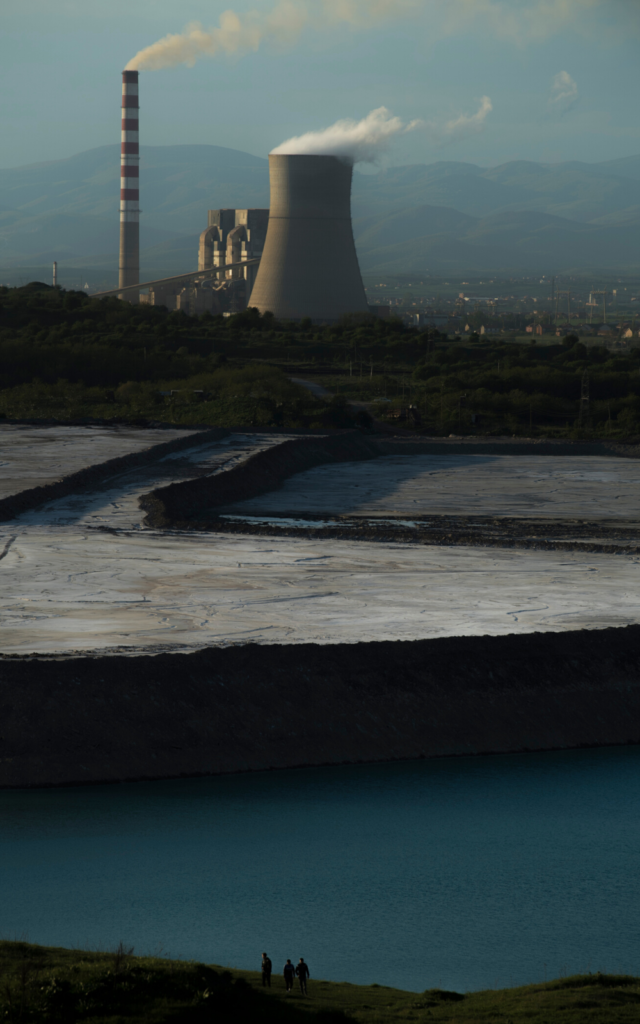
Read more:
Loan guarantee for Bosnia’s Tuzla 7 coal plant confirmed as illegal Press release | November 30, 2021
G20 ends public financing for international coal-fired power projects, we ask China to walk away from Western Balkan coal projects immediately | November 1, 2021
Risks for coal and electricity investments in the Western Balkans, Ukraine and Moldova due to state-aid rules Study & press briefing | June 8, 2015
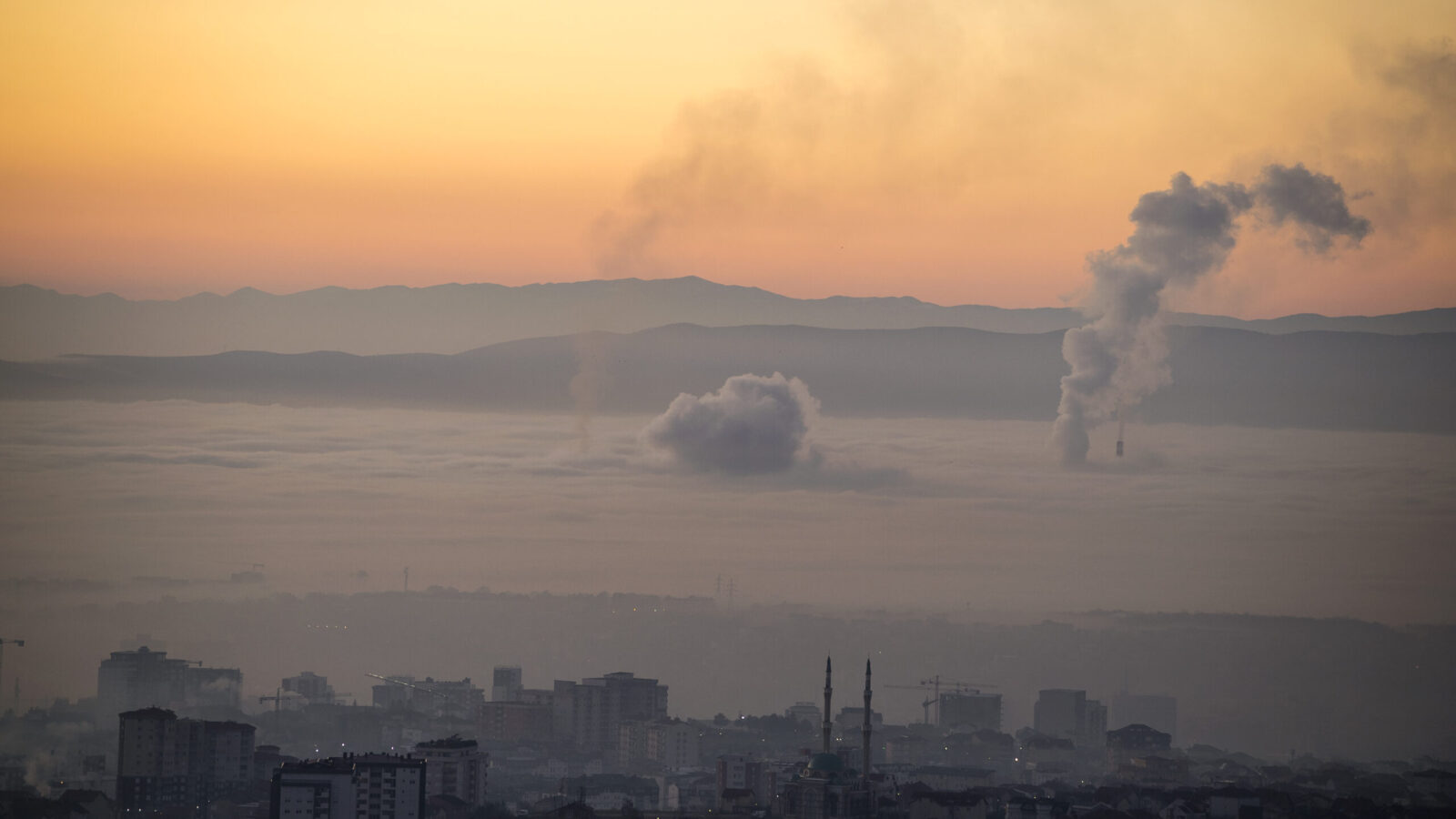
CO2 prices not taken into account
The Western Balkans countries will need to apply a CO2 price as soon as they enter the EU, at the very latest. But most likely, they will have to do so earlier if they want to avoid being caught by the EU’s planned Carbon Border Adjustment Mechanism. However, most coal projects fail to take the effects of CO2 prices into account, or use unrealistically low prices. CO2 prices rose from EUR 6/tonne in 2017 to more than EUR 88/tonne in late 2021 and are expected to increase further in the future. The plants will therefore be uncompetitive, with taxpayers footing the bill.
Read more:
New China-backed coal plants on EU’s borders could saddle states with massive carbon costs, Unearthed | January 14, 2020
Carbon costs for planned coal power plants in the Western Balkans and the risk of stranded assets Briefing | March 29, 2017
Sostanj lignite plant: A mistake not to be repeated
The TES6 lignite unit in Slovenia is a glaring example of the risks for coal projects in the Wester Balkans. It costs more than double the originally estimated amount and brings annual losses of tens of millions euros for the country. Just a few years after its opening, Slovenia is now discussing how to close it .
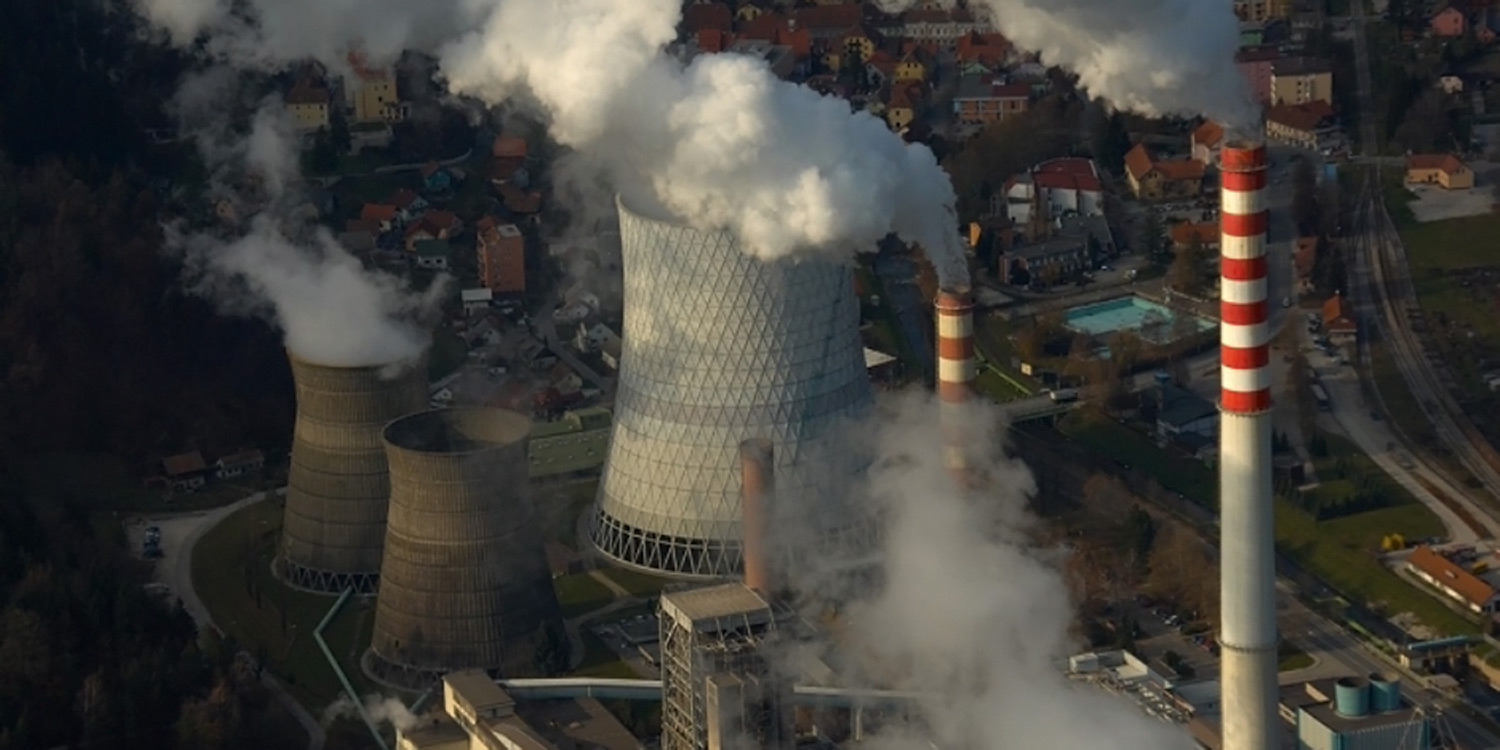
Pollution from existing plants
Alarming levels of air pollution
Every winter, towns and cities across the Balkans face the same problem of heavily polluted air, and residents are increasingly concerned about the health impacts. Ageing coal power plants, open-cast lignite mines and ash disposal sites play an important role in aggravating the situation.
The Comply or Close 2021 report, published by Bankwatch and the Centre for Research on Energy and Clean Air, showed that in 2020 the total SO2 emissions from coal-fired power plants in the Western Balkans were 2.5 times as high as those from all coal plants in the EU.
As a result, it is estimated that they were responsible for around 19,000 premature deaths from 2018 to 2020, spread between the region and nearby EU countries, and costing health systems and economies a total of EUR 6-12 billion per year.
Since 1 January 2018, existing coal plants have had to comply with pollution control rules under the Energy Community Treaty. But in 2021, plants across the region still breached sulphur dioxide limits by more than five times. Ugljevik in BiH was the highest-emitting unit for SO2 in the region in 2021, with 86,774 tonnes. The highest dust emitter in 2021 was Gacko in Bosnia and Herzegovina (BiH), whose emissions were no fewer than 16.3 times as much as allowed.
Due to the breaches of the pollution limits, in March 2021 the Energy Community Secretariat opened dispute settlement cases against Bosnia and Herzegovina, Kosovo, North Macedonia and Serbia. A dispute settlement case was also opened in 2021 against Montenegro, which is running its only coal-fired plant, Pljevlja, long beyond its legally allowed 20,000 operating hours without any desulphurisation equipment.
Independent dust monitoring
Although official air quality monitoring in the region still needs improvement, a lot has changed since the start of Bankwatch’s air pollution work in 2016. Awareness is significantly higher, various phone apps are available to follow pollution levels, locals of the more polluted towns are installing low-cost sensors, and young people are even making their own sensors. Information is more available, but all this accumulated data has led to almost no mitigation measures.
Bankwatch and partner organisations from the region have been conducting independent dust monitoring in nearly all coal regions in the Western Balkan countries, as well as in Bulgaria, Hungary and Romania. In all cases we have found worrying levels of particulate matter, dust so small that it enters deep into our lungs and blood stream causing irreversible damage and respiratory and cardiovascular diseases.
Read more:
Recommendations for inclusion of the Air Quality and National Emissions Ceilings Directives in the Energy Community Treaty | December 17, 2021
The heroic dust monitor blog post | July 22, 2021
Alarming levels of air pollution in settlements in coal regions are choking Central and Eastern Europe, results of independent monitoring carried out between October 2018 and December 2019
Lifting the smog, a tailored health impact analysis of 6 months exposure to PM2.5 pollution in Tuzla, BiH
Red alert: how alarming levels of air pollution in the Western Balkans require urgent government action Blog post | February 5, 2020
Peak pollution Multimedia briefing on monitoring results and video interviews with locals | June 26, 2017
Up in smoke – Why urgent action is needed on air quality in the Western Balkans Multimedia briefing on protests | February 29, 2016
Jobs myths and the case for a just transition
Hardly any coal operations across the region are economically viable, and as a result many coal workers, especially in the mines, are set to lose their jobs, even if the plans for new power plants materialise.
Bankwatch’s 2018 report, the Great Coal Jobs Fraud, found that while proponents of coal say almost 30,000 jobs will be created or maintained in southeastern Europe if new coal plants are built, in reality it is more likely that at least 5,000 jobs will be lost.
Rather than persisting with dangerous myths about the future of coal, governments, coal workers and their wider communities need to work together towards a just transition.
The future is renewable
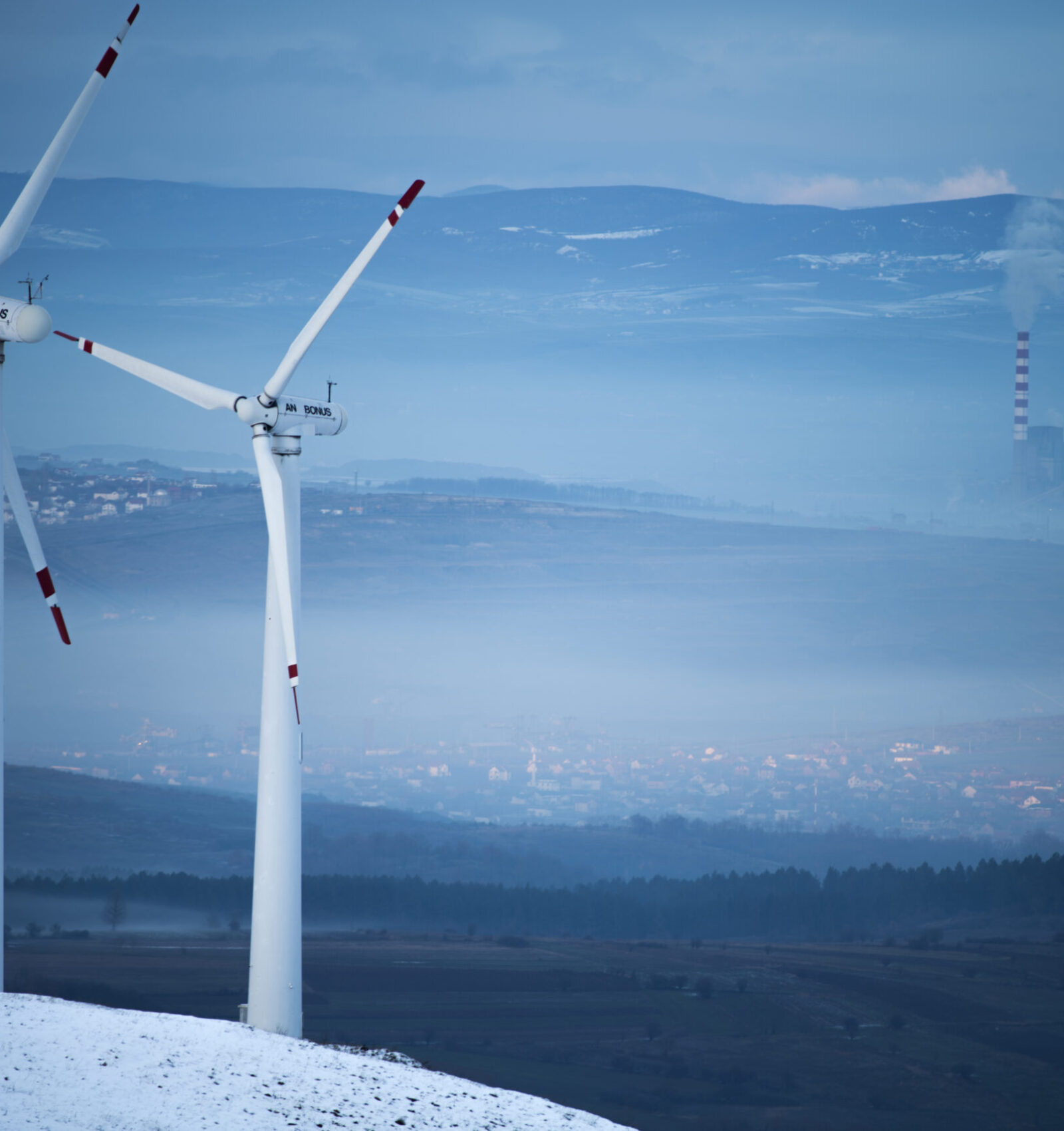
While the energy savings and renewables revolution may not be taking place in the region as fast as we would like, there is no doubt that it is gathering pace. In June 2021, North Macedonia became the first Western Balkan country to announce a coal phase-out date – 2027.
It has also led the way in the redevelopment of its Kichevo coal region, by planning a solar photovoltaic plant on the site of a former opencast coal mine.
As of early 2022, all the Western Balkan countries are developing National Energy and Climate Plans which should increase their renewable energy and energy efficiency ambitions until 2030.
Yet considerable work remains to be done to cut the region’s high levels of energy wastage, especially in the distribution system, as well as to ramp up renewable energy ambitions to a level on a par with that of the EU. A huge public outcry across the region about hydropower has also underlined the fact that renewable energy development needs to take biodiversity and other factors into account, and a region-wide push to replace coal with gas threatens to completely derail a sustainable transition and create new infrastructure lock-in.
The heating and cooling sector presents particular transition challenges, as there has been a tendency so far to keep district heating systems running on coal, or switch to gas, biomass or even waste, rather than more sustainable solutions.
Reducing demand through household insulation and thermostats, using heat pumps, solar water heating and solar district heating all need to play an increased role in the region if air pollution and climate change are to be tackled.
Latest news
NVO Eko tim: Termoelektrana Pljevlja i dalje krši pravila Energetske zajednice
Bankwatch in the media | 20 June, 2022Nastavaljući rad iako su potrošeni dozvoljeni 20.000 sati od 1. januara 2018. Iz tog razloga, Sekretarijat Energetske zajednice otvorio je …
Read moreBosnia and Herzegovina illegally extends lifetimes of deadly coal plants
Blog entry | 25 March, 2022Yesterday the Federation of Bosnia and Herzegovina’s Parliament voted to extend the lifetime of the antiquated Tuzla 4 and Kakanj 5 coal units, in clear breach of the Energy Community Treaty. The move condemns the public to yet more lethal air pollution.
Read moreEkolozi smatraju da je plan grijanja Pljevalja rađen potpuno pogrešno
Bankwatch in the media | 18 February, 2022Ines Mrdović iz Akcije za socijalnu pravdu ističe da su Pljevlja u proteklih nekoliko decenija stvorila potpunu ekonomsku zavisnost od …
Read moreRelated publications
Comply or Close 2024: six years of deadly legal breaches by Western Balkan coal plants
Report | 17 September, 2024 | Download PDFThe end of 2023 marked six years since the deadline passed for power plants in the Western Balkans to meet new air pollution standards. Yet the deadly air pollution from the region’s mostly antiquated coal power plants has hardly decreased at all since 2018.
From quantity to quality: how to improve the infrastructure project selection process under the Western Balkans Investment Framework
Report | 29 August, 2024 | Download PDFThe Western Balkans Investment Framework provides finance and technical assistance for investments, particularly in infrastructure, energy efficiency and private sector development.
Air pollution in Ugljevik, Bosnia and Herzegovina
Briefing | 27 March, 2024 | Download PDFUgljevik lignite-fired power plant, located in Republika Srpska, an entity of Bosnia and Herzegovina, is notorious Europe-wide for its extremely high emissions of sulphur dioxide into the air. Despite the exceptionally high stack of the power plant, the town of Ugljevik is still suffering from serious air pollution.

